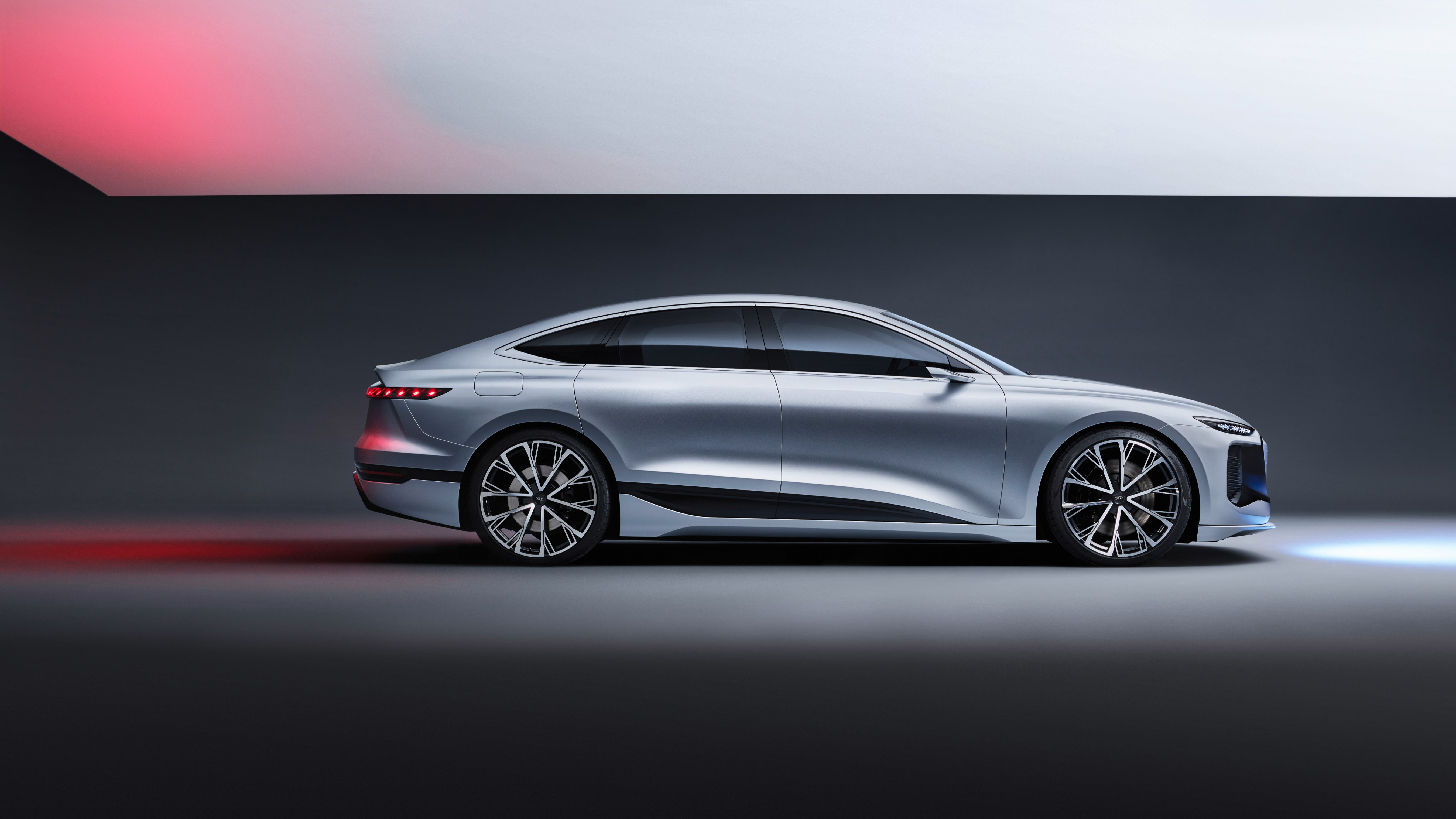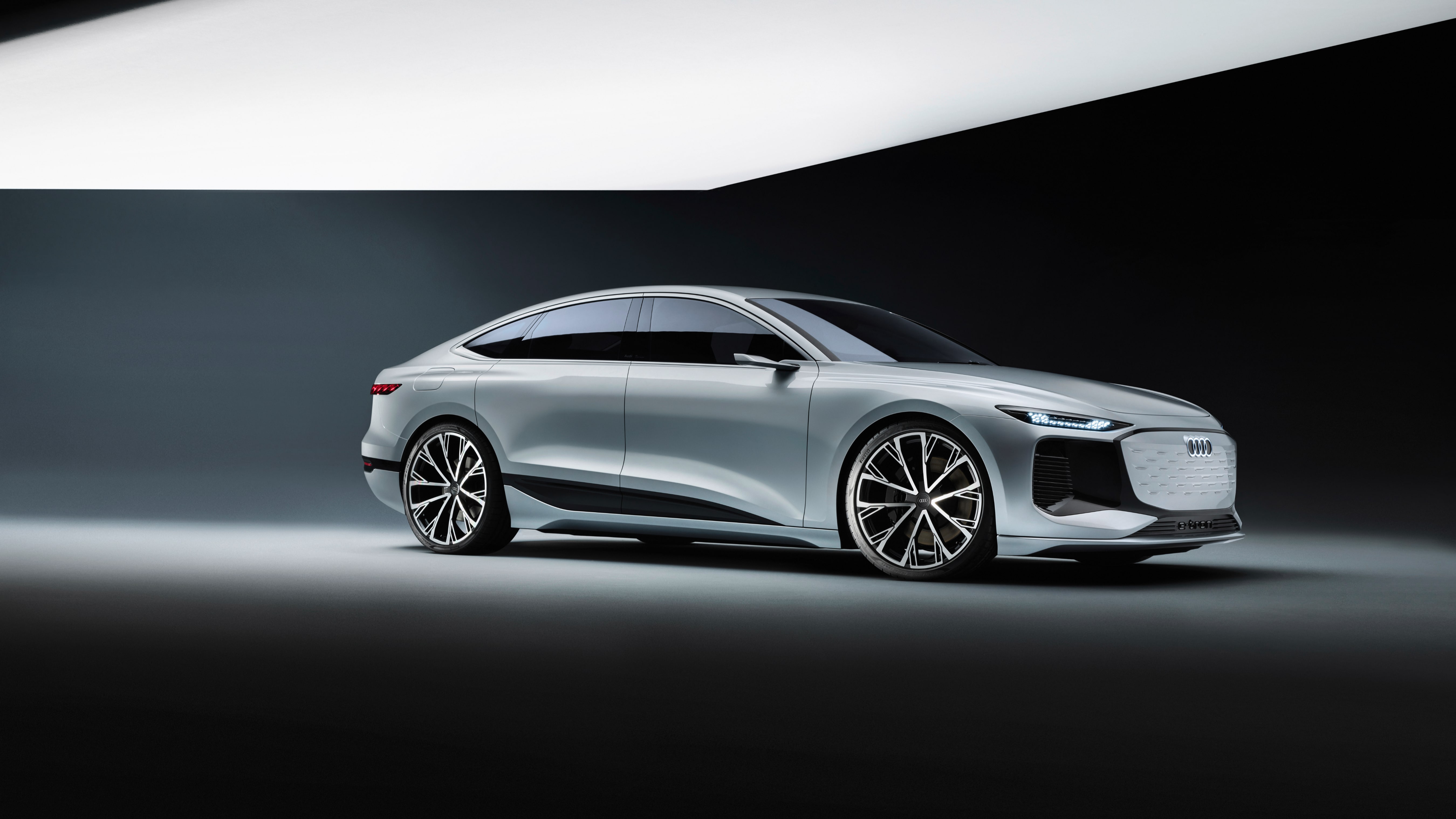The Audi A6 e-tron concept is bold and bonkers

Audi has laid down a marker for its bright electric future with the announcement of the A6 e-tron concept car at the Shanghai Auto Show 2021.
The fully electric, four-door Sportback EV is being designed using the company’s completely new EV technology, Premium Platform Electric (PPE), which is being co-developed by Porsche and is expected to underpin several new luxury models from the German manufacturers – including the electric Porsche Macan and Audi Q6 e-tron.
Audi says this new electric architecture will allow the A6 e-tron to sprint faster and last longer than its A6 hybrid counterpart, and marks a promising glimpse of the company’s future production EVs.
- Audi's new fully electric car is its cheapest yet
- The Audi e-Tron GT is the most powerful Audi EV to date
- Audi e-tron: driving the first all-electric Audi
For starters, the A6 e-tron is said to boast the ability to charge its 100 kWh battery from 5% to 80% in less than 25 minutes thanks to 270 kW fast charging – that’s not groundbreaking speed, but it's made more impressive when you learn that the highest spec model will sport a range of nearly 435 miles.

For comparison, the entry-level Q4 e-Tron – the cheapest EV set to enter Audi’s lineup – features a 52kWh battery and a modest 216-mile range (which is similar to the xDrive40 variant of the BMW iX). Of course, the A6 e-tron will likely sit at the more expensive end of the company’s electric offerings, but these figures nonetheless offer a taste of what Audi’s new PPE platform can bring to the table.
The A6 e-tron will be no slouch when it comes to on-the-road performance, either. The most powerful models will sprint from 0-62mph (0-100kph) in less than four seconds, which would be even faster than Audi’s e-tron GT quattro – currently the brand’s quickest EV.
The future is here
There’s no denying that Audi’s latest concept looks like a vehicle plucked straight from the streets of a sci-fi set, and it’s one packed with equally-futuristic interior and exterior tech.
Sign up for breaking news, reviews, opinion, top tech deals, and more.
The A6 e-tron will feature the brand’s new camera-based virtual exterior mirrors, which made their first appearance on the e-tron Sportback earlier this year. The headlights, too, will be suitably futuristic, with digital Matrix LED and OLED technology allowing the driver to switch between multiple light signatures on-the-go.
Not only will these headlights dynamically respond to traffic around them, but they'll also be able to project a smartphone-controlled, Audi-branded video game onto a nearby wall to be played by the car's occupants. Yes, really. You can see it in action here.
In addition to tech we’ve already seen on recently-announced Audi EV models, though – the virtual mirrors and Matrix headlights are old news now – the Audi A6 e-tron will take its gadget-loaded design one step further through an unlikely source; its paintwork.
The car will adopt “Heliosilver” paint, which will not only give the A6 e-tron a technoid-looking aesthetic, but also offer tangible technical benefits to reduce energy consumption. Audi says the paint can reflect a significant percentage of the thermal radiation in sunlight, thus reducing the amount of energy that enters the car’s body and, above all, its interior. Occupants therefore won’t need to use air conditioning to maintain comfort, and so the car’s CO2 footprint will be dramatically reduced.
It’s clear, then, that the Audi A6 e-tron offers an exciting forecast for the future of luxury-grade EVs. By 2025, Audi plans to produce 30 electrified models – 20 of which will be pure electric – and expects these to account for around 40% of sales worldwide.
Of course, this particular car only represents a concept model at this stage – so there's no guarantee a final offering will contain all the tech listed above – but if half of Audi's planned EVs end up at least looking as good as the A6 e-tron, there’s reason for optimism.

Axel is TechRadar's Phones Editor, reporting on everything from the latest Apple developments to newest AI breakthroughs as part of the site's Mobile Computing vertical. Having previously written for publications including Esquire and FourFourTwo, Axel is well-versed in the applications of technology beyond the desktop, and his coverage extends from general reporting and analysis to in-depth interviews and opinion.
Axel studied for a degree in English Literature at the University of Warwick before joining TechRadar in 2020, where he earned an NCTJ qualification as part of the company’s inaugural digital training scheme.